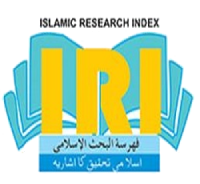امام شوکانی ؒ اور استنباط ِ احکام کی بنیادیں (ایک تحقیقی و تجزیاتی مطالعہ)
Imam Showkani and Foundations of Derivation of the Rulings (An exploratory and analytical study)
Keywords:
Showkani, jurisprudence, Ijtihad, principles, derivation, foundations, political, economic and administrative jurisprudenceAbstract
Imam Shukani is considered as Imam in jurisprudence and ijtihad. Hundreds of his students, numerous fatwas and many books are proof of this. In his ijtihad opinions, he has laid great emphasis on re-studying and renewing the foundations of jurisprudence. Because these principles are very important for Ijtihad. In this regard, some of the important principles stated by him are as follows; The first is that it is necessary to renew the rules and regulations of using jurisprudential heritage. The second is that every art must be derived from its people because the one who is an expert in the art can give a better opinion about it. Thirdly, there is a need to re-examine the established principles and rules of jurisprudence, because many rules have been passed down from the imams without evidence from the Qur'an and the Sunnah. Fourthly, there is a need to re-examine the rules of Jarh (جرح) wa Ta`deel (تعدیل) because many of the imitators have a soft spot for the narrators of their own religion and a harsh attitude towards those of other religions. Fifthly, it is necessary to derive the arguments of the Shariah from their original place, it is a mistake to take the arguments from the books of jurisprudence for the research of a topic, because the religious affiliation affects the priority of discussion and arguments. Sixthly, the principle of political jurisprudence must be renewed, because in the age of decadence, people have made many fabricated ideas a part of religion. Seventh and eighth is that the renewal of economic, administrative and social jurisprudence is also necessary. These points are being presented in detail in this article.
Downloads
Published
How to Cite
Issue
Section
License

This work is licensed under a Creative Commons Attribution 4.0 International License.
This work is licensed under a Creative Commons Attribution 4.0 International License.





